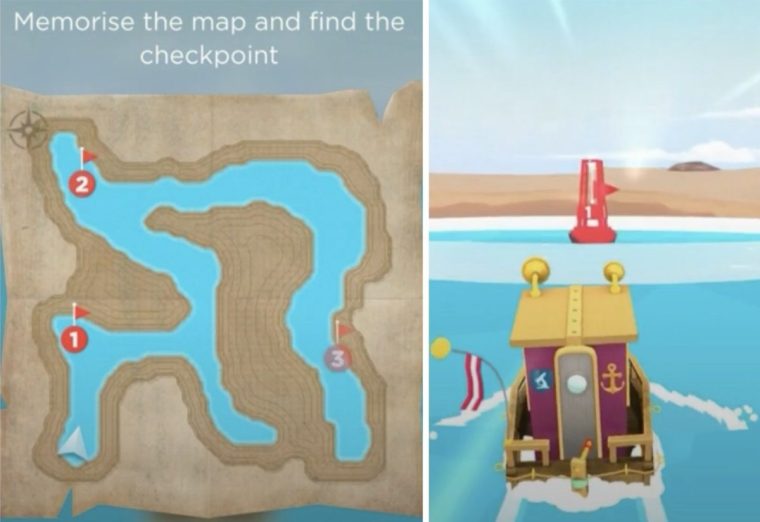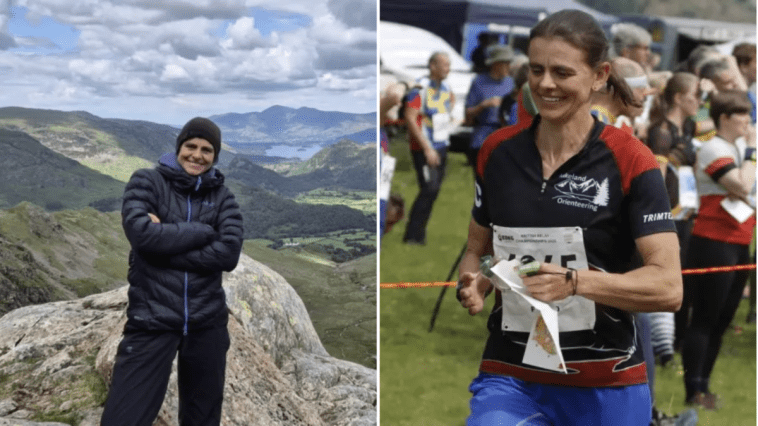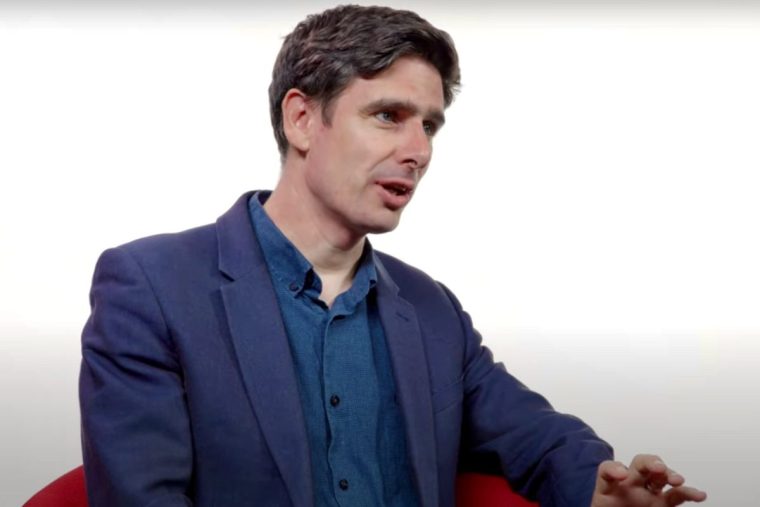Ever wondered why some people have no sense of direction ? Why they start walking the wrong way, even when they’re looking at Google Maps on their phone ?
There is a growing body of scientific research on why “super-navigators” have a knack of finding their way around and why some people get lost in familiar places – even with the help of technology.
While scientists do believe genetics play a role, one key factor is upbringing. People growing up in rural or suburban areas have better skills than those raised in cities , according to researchers. It is likely to be explained by a lack of complexity in most urban street networks.
Brain experts also think a better understanding of why some people have an unfailing inner compass and others do not may help in the fight against dementia.
Loss of navigational skills is one of the first symptoms of dementia, and developing a better sense of direction may help ward off decline in brain function.
This is one of the findings from teams at University College London (UCL) and University of East Anglia (UEA), who are investigating dementia and what shapes our sense of direction using a single mobile video game, Sea Hero Quest .
The project, a collaboration between the universities and game developer Glitchers, studied the navigational abilities of 4.3 million people in 195 countries who downloaded and played the game .
Sense of direction better in men or women?
UCL cognitive neuroscientist Professor Hugo Spiers says he was shocked by how much the data revealed. For one thing, it helped dismantle the stereotype that men have an innately better sense of direction than women.
Men do outperform women in some countries, the video game data shows. But the difference is only clear in parts of the world where there are glaring gender inequalities in education and how much travelling women are expected to do.
In the UK, like many wealthier countries, there was only a very small male advantage in spatial navigation ability.
“It’s very likely massively due to culture. It’s probably not biological,” says Professor Spiers on the differences between men and women.
Data from Sea Hero Quest – in which a son tries to recover the memories his father has lost to dementia – also shows that Scandinavians are the world’s best navigators. It’s down to the amount of outdoor play built into Nordic education, researchers believe.

Pablo Fernandez Velasco, a fellow at the Centre for the Sciences of Place and Memory at Stirling University who was involved in some of the Sea Hero Quest research, says navigating is not a “monolithic” skill and varies depending on upbringing.
While good navigators in map-based societies appear to have a strong sense of which direction north lies, this kind of orientating is not the only way of getting from A to B effectively.
“In many cultures a lot is about visual cues,” Velasco explains. “But there is evidence of other things: people locating by sense of smell, by listening to bird songs, listening to the river. In the Marshall Islands, the sailors use the feeling of the waves.”
The Sea Hero Quest research found that age is the single biggest factor in whether someone gets lost or finds their way. It’s evident across all cultures. “Navigational capacity declines with age. It’s the biggest variable we’ve seen,” says Professor Spiers.
The UCL expert hopes the research can be used to help detect Alzheimer’s disease at an earlier age, monitor its progression and the impact of treatments.
Champion in directions
Pippa Archer has a fantastic sense of direction. The 47-year-old, who grew up roaming the Surrey countryside, has the medals to prove it.
Archer is a British orienteering champion. She is currently helping competitors prepare for next month’s World Championships in Finland as the GB team’s performance manager.
A mountaineering guide, Archer also teaches people who have a wonky sense of direction. Leading a group in the Lake District, she recently helped a woman who had become reliant on Google Maps to get anywhere.

“She always put the route in her phone and used her phone to get around. I said, ‘We’re not using the phone now – put it away’. She was a bit terrified.
“We used a map and looked around at our surroundings. She said: ‘I’ve never really looked at the mountains before.’ And she grew in confidence.”
Archer puts her own navigational knack down to her upbringing. “My parents gave me the freedom to explore. There were a lot of school trips where we did a lot of navigating.”
While she also uses her mobile phone map when in a new city, Archer says people shouldn’t be afraid to get lost. “There’s something about exploring without feeling worried that is powerful.”
Nature v nurture
So how much of navigating skill is hardwired from birth? How much is nature and how much is nurture? Despite the huge importance in upbringing and culture, Professor Spiers thinks some people do have innately stronger ability than others.
“It’s like any cognitive skill – there is some genetic loading,” says Professor Spiers. “It’s likely that really good navigators have a well-functioning brain circuit for navigating. If you are also tuning those areas up, you are going to get better.
“Someone who gets lost easily, their compass isn’t so tuned. But people can get better at it. Some people improve at getting around simply by being meticulous at planning ahead.”

Several studies on taxi drivers point to a bigger posterior hippocampi – the part of the brain responsible for memory and spatial co-ordination.
A recent Harvard study published in the British Medical Journal found taxi drivers, who are constantly solving complex spatial puzzles, are less likely to die from Alzheimer’s disease than other occupations.
It suggests that working our navigational muscle may even help fend off dementia. “It’s not proven though – it’s more of a sensible assumption,” says Professor Spiers.
Professor Arne Ekstrom of the University of Arizona says his own research – testing people’s ability to navigate virtual environments – suggests we can improve our directional skills quite quickly.
The cognitive neuroscientist says there is mixed evidence on whether over-reliance on GPS apps like Google Maps is making us lazy.
Lifting our heads and concentrating more on our surroundings is the key to developing a better sense of direction if we easily get lost, says Professor Ekstrom.
“If you’re using it [Google Maps] to follow a line, follow a command, you’re not learning about the environment. But if you use it to learn where things are, it can help.”
Professor Ekstrom adds: “You shouldn’t be on your phone all the time – you should be paying attention to landmarks, to how streets and routes connect. It’s also modern society. We’re often doing five things at once, and we’re not focusing.”
Archer agrees. “Our competitors get lost all the time, but they’re very good at recognising it and learning from it,” say the orienteering champion. “You have to keep exploring.”
Professor Spiers wants to hear from readers of The i Paper who struggle with developmental topographical disorientation – getting lost in their own neighbourhood, their workplace or even at home. He can be contacted at h.spiers@ucl.ac.uk

Posting Komentar